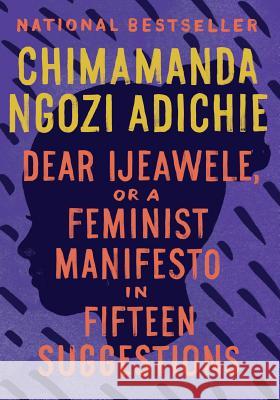Dear Ijeawele, or a Feminist Manifesto in Fifteen Suggestions » książka
topmenu
Dear Ijeawele, or a Feminist Manifesto in Fifteen Suggestions
ISBN-13: 9780525434801 / Angielski / Miękka / 2018 / 80 str.
Kategorie:
Kategorie BISAC:
Wydawca:
Anchor Books
Język:
Angielski
ISBN-13:
9780525434801
Rok wydania:
2018
Ilość stron:
80
Waga:
0.09 kg
Wymiary:
15.75 x 11.18 x 1.02
Oprawa:
Miękka
Wolumenów:
01











